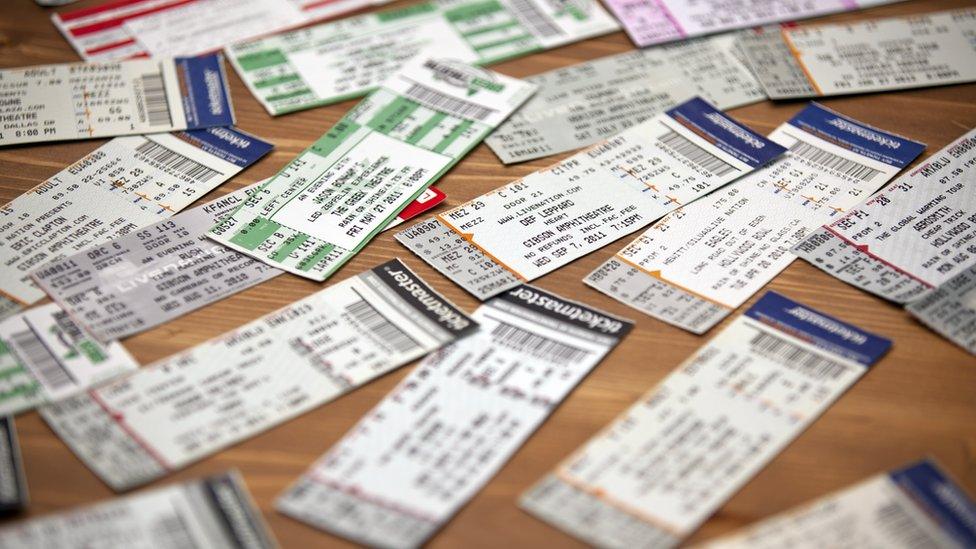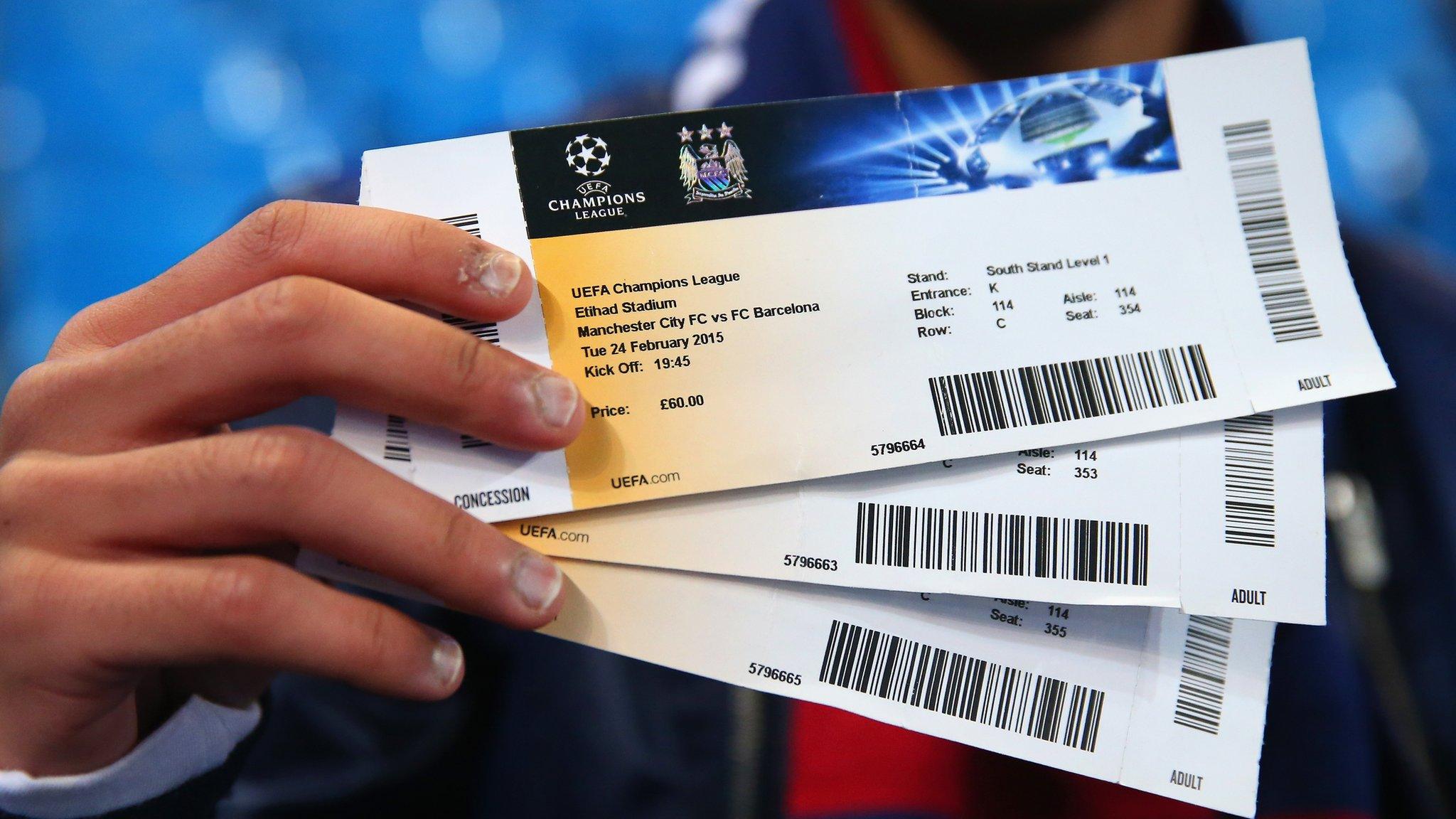Gig-goers must get resold ticket warning, says CMA
- Published

A review of the ticketing market was conducted earlier this year
Gig-goers should be warned that they may be turned away at the doors if they buy tickets from the secondary market, the competition authority has said.
An investigation into the secondary tickets market has been launched by the Competition and Markets Authority (CMA).
Many websites re-sell tickets for music, theatre or sporting events which have previously been bought by others.
Earlier in the year four of the biggest firms promised greater transparency.
The new investigation will focus on whether information is provided about:
The identity of the seller
What connections the seller has with the event organisers
Any restrictions in the use of resold tickets, which could lead to ticket-holders being turned away
Where a seat is located in the venue
"A night out at a concert or a trip to a big match is something that millions of people look forward to. So it is important they know who they are buying from and whether there are any restrictions that could stop them using the ticket," said Andrea Coscelli, the CMA's acting chief executive.
The CMA will consider whether both the businesses selling tickets and the secondary ticketing platforms advertising them are breaking the law by failing to provide the full range of information.
Enforcement action, including fines determined by the courts, could result if the competition law is found to have been breached.
The Society of Ticket Agents and Retailers said: "We welcome and support this latest development and the continuing work of the Competition and Markets Authority to ensure compliance with the law by all those operating in the ticket resale sector."

While it is not illegal to re-sell tickets, it is thought that some of the selling patterns are only possible because of software known as "bots", which automatically sweep up huge numbers of tickets the moment they go on sale. Tickets are then resold at a profit on secondary market websites.
Some tickets for popular bands have been advertised for nearly 100 times their face value. Sir Elton John has also branded secondary ticket sites "disgraceful".
The market has been in the firing line from authorities this year.
The CMA carried out a review of the four main secondary ticketing websites - Get Me In, Seatwave, StubHub and Viagogo - to ensure they improved the information provided about tickets advertised on their sites. One website was not fully complying with its promises, the authority said.
And in November, the BBC revealed that the tax affairs of the secondary ticketing industry are being targeted by HM Revenue and Customs.
'Strong action'
A government review, authored by Professor Michael Waterson, economics professor at Warwick University, praised Glastonbury's ticketing model where tickets are "deliberately personalised" and ID is checked at the gates.
MPs have also criticised the opportunities the secondary market offers to touts.
A recent survey by consumer group Which? found the rules were consistently being breached.
"On numerous occasions we have found tickets being sold unlawfully, so we welcome the competition authorities taking action to tackle this," said Vickie Sheriff, director of campaigns at Which?.
"No one can know the real value of their ticket if they have not been given the information on face value, where the seat is located and any restrictions. We expect the CMA to take strong action against ticketing sites and businesses not playing by the rules."
- Published15 November 2016

- Published5 March 2015

- Published15 November 2016
